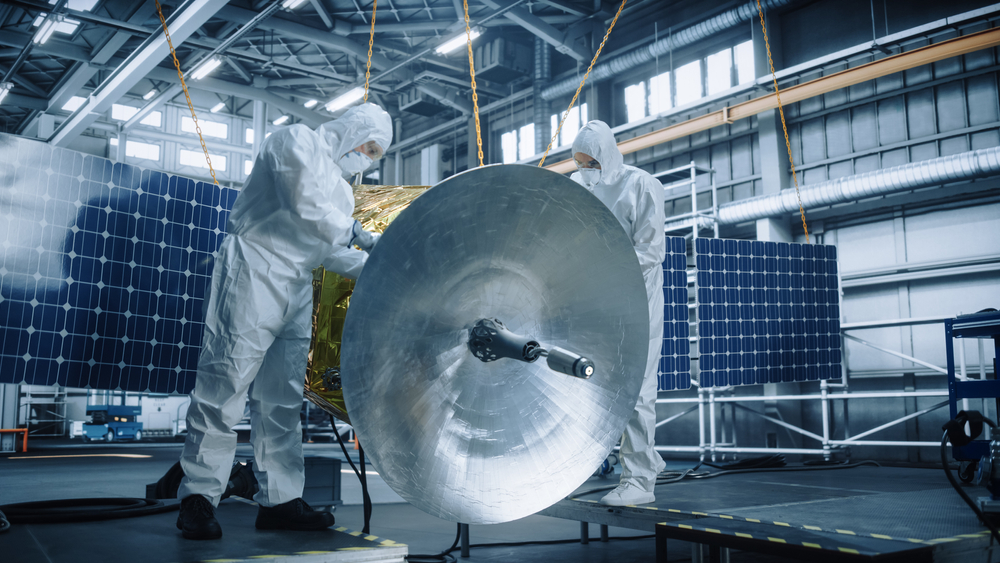Helium leak testing has emerged as an essential component in the energy industry, ensuring the safety and efficiency of various systems. This precise testing method identifies the smallest leaks, which could lead to significant safety hazards or energy loss if left undetected. Given the complexity and scale of operations within the sector, such as hydrogen storage and fuel cells, maintaining airtight systems is crucial. Being inert and capable of detecting even the most minor leaks due to its low atomic weight, Helium becomes the ideal choice for this purpose. As the energy industry drives towards safer and more sustainable practices, the importance of helium leak testing continues to rise, offering reliable solutions to critical challenges.
The science behind helium leak testing
Helium leak testing is an accurate technique for identifying leaks in different systems and products, helping to maintain strong safety and efficiency standards. Due to its unique properties, this process involves using Helium as a tracer gas. Helium is inert, meaning it doesn't react with other substances, which makes it safe and non-corrosive. Its small molecular size allows it to escape through even the smallest leaks easily, making it ideal for accurate detection. Helium can unveil issues that are not easily spotted by other methods when paired with a sensitive leak detector. Helium leak testing stands out for its accuracy and reliability compared to other leak detection methods. Many methods either lack the precision necessary for detecting tiny leaks or involve substances that could pose safety risks. Helium's inert nature provides a clear benefit here, eliminating these concerns. Furthermore, using Helium as a tracer gas significantly contributes to operational efficiency and cost savings by identifying leaks early, reducing the potential for costly damage. From an environmental perspective, helium leak testing aligns well with sustainability goals. It prevents waste and minimizes environmental impact by ensuring systems function correctly without leaks. This proactive approach safeguards the environment and enhances the longevity and performance of energy sector applications. The benefits of utilizing helium leak testing are profound, encompassing safety, economic, and ecological advantages.
Critical applications in the energy sector
Hydrogen storage systems
Hydrogen is a key component in the transition to cleaner energy. However, storing hydrogen poses a unique challenge due to its small molecule size, which makes it prone to leaks. Helium leak testing plays a crucial role here. The sensitivity of helium leak testing allows for detecting even the smallest leaks, ensuring that storage systems are safe and secure. By maintaining optimal storage conditions, we prevent potential hazards and contribute to more efficient energy production.
Fuel cells
Fuel cells require airtight integrity to function efficiently. Any leakage can lead to decreased performance, thus making helium leak testing indispensable. This testing method ensures the system maintains its concentration of gases, boosting energy efficiency and prolonging the cell's lifespan. By keeping the system in check with helium leak testing, we are assured of its reliable operation over time.
Renewable energy systems
In the realm of renewable energy, such as solar and wind systems, the importance of leak detection cannot be overstated. Any leaks within these systems can lead to decreased performance and increased maintenance costs. Helium leak testing rapidly detects and addresses any potential problems. This not only extends the operational longevity of the systems but also supports sustainable energy production.
Electrical cabinets and switchgear
Electrical cabinets and switchgear must meet specific IP protection levels to ensure safety and reliability. Helium leak testing is a dependable method for confirming that these levels are achieved. By detecting any breaches, it helps maintain the system's concentration of protection, ensuring safety and performance.
Industrial electronic equipment and battery packs
Maintaining a sealed design is critical for industrial electronics and battery packs, particularly those used in extreme environmental conditions. Helium leak testing ensures these devices are adequately protected against environmental stressors. This testing method detects potential vulnerabilities early on, thus securing the integrity of the device and ensuring continuous operation.
MVS Technologies and helium leak testing
MVS Technologies is at the forefront of helium leak testing solutions, offering innovative systems tailored to meet the unique demands of the energy sector. Their solutions are designed for precision and reliability, ensuring that the most stringent testing requirements are met easily. We understand that no two projects are alike, so our systems are adaptable, ensuring seamless integration into diverse operational contexts. This adaptability allows businesses to maintain compliance with industry standards without sacrificing performance. MVS Technologies invites collaboration for those looking to enhance their leak testing capabilities. Businesses can develop bespoke solutions that align perfectly with their operational goals by engaging with our experts. For further details on our helium leak testing systems and to initiate a consultation, visit MVS Technology's site!

